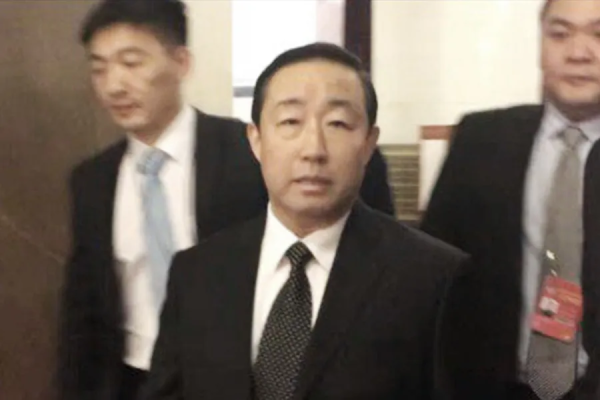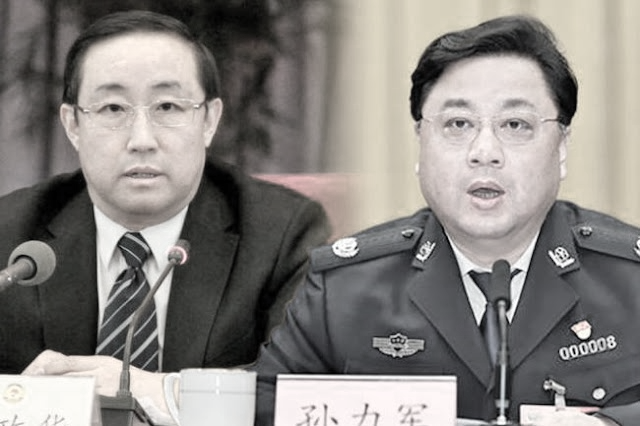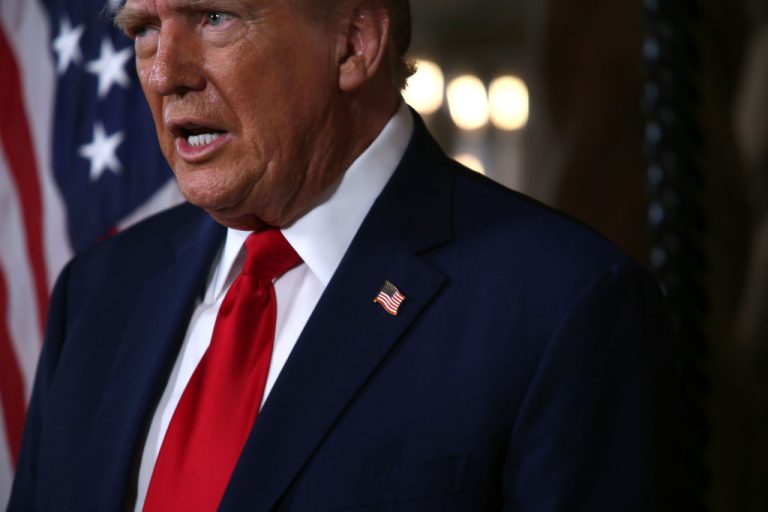Fu Zhenghua, China’s ex-Minister of Justice and a career police official notorious for his crackdown on human rights lawyers, was handed a death sentence in a northeastern Chinese court on Thursday, Sept. 22.
The Intermediate People’s Court of Changchun city ruled that Fu, 67, was guilty of “taking bribes worth more than 117 million yuan ($16.5 million) and bending the law for personal gains,” according to the Communist Party-run outlet Global Times.
However, Fu is unlikely to be executed as his death sentence comes with a two-year reprieve, after which his punishment will be commuted to life imprisonment. He was stripped of all his assets and political rights, and will not be able to appeal the case, the court ruled.
Fu is the highest-ranked former official to be recently taken down in Chinese leader Xi Jinping’s anti-corruption campaign, which has purged or punished millions of Party cadres.
He was placed under investigation last Oct. 2, and expelled from his posts this March. Prior to that, he held the post of Justice Minister from 2018 to May 2020, before being transferred to a minor position in the Chinese People’s Political Consultative Conference.
Success
You are now signed up for our newsletter
Success
Check your email to complete sign up
In July, weeks before the informal Beidaihe gathering of Chinese Communist Party (CCP) officials and retired regime elites, Fu was indicted for the charges for which he would be sentenced.
On Sept. 23, Chinese state media announced that Sun Lijun, the erstwhile deputy head of China’s Ministry of Public Security (MPS), was also handed a death sentence with a two-year reprieve.
‘Political gangs’
According to the court, Fu abused his power for personal gain between 2005 and 2021 while serving as director of Beijing’s Public Security Bureau, as well as after he was promoted to MPS vice-minister in August 2013. He also hid the criminal activities of his brother Fu Weihua.
Similar charges were levied against Sun Lijun, who was found guilty of illegally possessing firearms.
Several other lesser regime security officials, notable among them Wang Like (pronounced lee-kuh), were also sentenced on Sept. 22 by the Changchun court in connection with the Fu and Sun cases. Wang, who was purged in October 2020, has been criticized in the Chinese state media as having run a “judicial mafia” in the eastern province of Jiangsu, which borders Shanghai.

SinoInsider, a risk consultancy specializing in Chinese elite politics, forecasted the downfall of Fu Zhenghua in 2018 when he took office as justice minister, observing that he had close links to the political faction of former Chinese Communist Party (CCP) general secretary Jiang Zemin.
Many of the senior officials purged in Xi’s anti-corruption are associated with Jiang, who is now 96, and his close allies.
SinoInsider noted in July that while the initial accusations by Party authorities against both Fu and Sun were very severe, charges were watered down by the time they made it to court.
“As with the Sun Lijun case, Fu Zhenghua is not being put on trial for the political charges leveled against him. When the CCDI announced Fu’s expulsion from the Party and office, he was accused of having ‘participated in Sun Lijun’s political gang, formed gangs and factions, and formed interest groups,’ ‘defrauded and deceived Party Central on major issues, endangering the centralization and unity of the Party,’” as well as friendship with many “political liars,” the China analysts wrote in a newsletter entry at the time.
Factional struggle
The anti-corruption campaign launched in 2013 has its immediate origin in the Wang Lijun incident of February 2012 that happened months before Xi was even confirmed as Chinese leader. That episode shook the CCP leadership, leading to the downfall of former Politburo members Bo Xilai and Zhou Yongkang.
Since then, Xi has continued to go after officials in various sectors of the Chinese regime, notably the security community. Almost all high-ranking figures purged from the Political and Legal Affairs Commission (PLAC), the overarching CCP organization that controls China’s police, prosecution, and courts, are affiliated with Jiang Zemin, the former Party boss whose faction reigned supreme in regime politics until the early 2010s.
Wang Like, the Jiangsu CCP official accused of running a “judicial mafia” in league with Sun’s “political gang,” was sentenced for “taking and offering bribes, sheltering and conniving with mafia-like organizations, and forging identity documents,” as reported by Global Times.
Prior to arriving at his post in Jiangsu, Wang used to work under Bo Xilai and Wang Lijun in the northeastern Chinese province of Liaoning.
Fu and Sun are among the multiple Party officials purged by Xi who held leadership positions in the “610 Office,” an extralegal security organization created in 1999 by Jiang Zemin to orchestrate the persecution of Falun Gong and other faith groups the CCP deemed undesirable.
The days after Fu’s sentencing saw human rights lawyer Zhou Shifeng, one of the attorneys detained in the “709” mass arrests, released after finishing his seven-year term in prison.
Zhou, who worked in Beijing, is noted for taking politically sensitive cases, including those of Falun Gong practitioners and plaintiffs in the 2008 Sanlu tainted milk powder scandal.

















